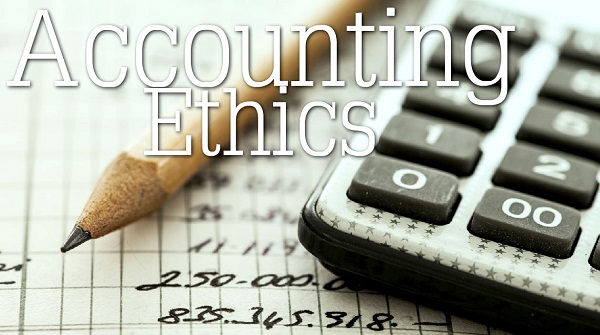The Mirror's Health , Lifestyle and Fashion

Accounting for Ethics
This was in direct reference to the shocking revelation that Ernst & Young, the auditing firm, had agreed to a record $100 million settlement with the US securities regulator to resolve claims that some of its employees cheated on an ethics exam, among many other issues of concern raised by the Securities and Exchange Commission (SEC).
Advertisement
“This action involves breaches of trust by gatekeepers within the gatekeeper entrusted to audit many of our nation’s public companies,” Gurbir Grewal, a director of the SEC’s enforcement division, said in a statement. “It’s simply outrageous that the very professionals responsible for catching cheating by clients cheated on ethics exams of all things.”
According to available records on the matter, as explained by the SEC and reported by the FT, “Between 2017 and 2021, 49 EY staff sent or received answer keys to the ethics portion of the Certified Public Accountant exam, with hundreds more cheating on tests required to maintain the certification”.
Grewal said: “This action should serve as a clear message that the SEC will not tolerate integrity failures by independent auditors who choose the easier wrong over the harder right.”
Significantly, EY has acknowledged the SEC’s findings and is ready to comply with the SEC order, explaining that “this unacceptable past behaviour has been thorough, extensive, and effective”, adding also that it would continue to take all the necessary steps, including disciplinary action and training to “strengthen” commitments to “compliance, ethics, and integrity”.
In fact, in June 2019, KPMG, another Big Four auditing firm, agreed to a $50 million civil penalty to the SEC on charges of some impropriety. Among the many reasons stated for the fine were some allegations of cheating by some employees in some mandated training exams.
So what are we looking at here? Well, this is a serious case of a gatekeeper failing to stay true to the tenets of the profession.

My personal experience in life, in one sentence, is that there is a reward for everything you do, whether good or bad. I call it the debits and credits in life that shape our thinking, and cause us to either change course or stay on the same path. Life is all but double-entry, so you must think about the good and the bad, just as you think about hell and heaven.
Ironically, in the two examples stated above, the vanguards of double-entry failed to balance their own equation, and allowed a few bad apples to affect the whole.
In fact, to quote one of Johann Wolfgang von Goethe’s characters in Wilhelm Meister’s Theatrical Calling: “Double-entry bookkeeping … is one of the finest inventions of the human mind and every prudent master of a house should introduce it into his economy”. Goethe’s philosophical novel of the 18th century underpins most of the critical balancing acts accountants engage in. But it is the Italian mathematician, Luca Pacioli, who is credited for the invention of, and the use of journals and ledgers in accounting systems. In fact, historians claim that Pacioli warned that the “accountant must not sleep until the debits are equalled to credits”. But what do we see here? A complete single entry, and sleepy sloppy act by accountants!
Pacioli’s work dates back to more than 500 years, and he saw the potential of double-entry bookkeeping as an instrument for scientific and economic progress. In his book “Decomputis et scripturis”, which forms part of his well-known book “Summa de arithmetica, geometria, proportioni et proporzionalità” (Review of arithmetic, geometry, ratio and proportion) he poignantly stated that: “My method is nothing but an appropriate way of bringing order to the merchant’s fantasy, allowing him to gain an overview of all his affairs and to see easily whether they are in good shape or bad.”
Pacioli’s teachings are still relevant today in more ways than one, as his views reflect the general truth and the operation of general laws that if you fail to balance the scale of your financial assets and liabilities, chances are, you will show more red than black. To this, l also add that you must also be able to determine whether your affairs are in good or bad shape. This also applies to the “balance sheet” of the accounting firms too.

For some in the finance space, unconscious attitudes may have influenced them to act against their ethical values, but for many others too, such as Bernie Madoff, it was intentional unethical behaviour. In the direct case of Madoff, his Ponzi scheme, which brought untold hardships on many, was riddled with serious breaches of moral values.
Overall, scandals involving trusted players in the finance and accounting industry have led to loss of trust, and that credibility deficit has the potential to derail economic growth. Early this year, for instance, the financial press was filled with stories about a former head of investment banking of Goldman Sachs in Malaysia, standing trial in a US court over a scandal involving the looting of a Malaysian sovereign wealth. Roger Ng was charged with “conspiring to launder money and violating anti-bribery law” in his dealings with Malaysia’s 1MDB sovereign wealth fund. He, however, pleaded not guilty.
In broad terms, the accounting profession, just like the wider financial market, is highly regulated, and yet some of the big scandals are traced to bad conduct of some professional in the field, and other players within the financial market as a whole. Attempts to forestall the occurrence of financial scandals, such as the introduction of the Sarbanes Oxley and the most recent Dodd Frank Acts, aimed at improving regulation, market conduct and consumer protection, are yet to convince society that scandals will end someday. Well, as you can infer, it is certainly not all about rules. People’s conduct matter, as much as the rule book, and as explained earlier, all attempts must be made to balance the debits and credits in our personal conduct too.




